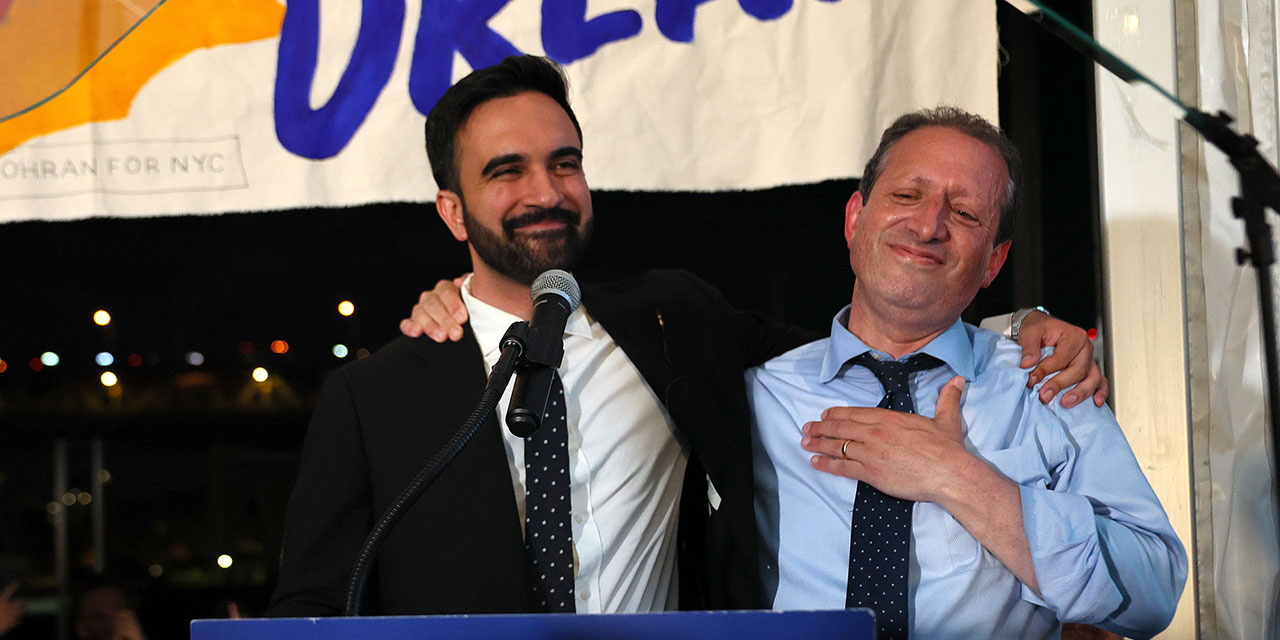
Once upon a time, a New York member of the Democratic Socialists of America won the Democratic Party’s mayoral nomination, backed by the Working Families Party. This thirtysomething activist ran on a platform of publicly owned grocery stores, reallocating police funding to community-based mental health responders, and tenant-friendly policies. The primary election delivered a major surprise, with the socialist candidate capturing the Democratic line.
But then Byron Brown, the incumbent Democratic mayor of Buffalo, launched a write-in campaign against India Walton, the surprise nominee. Brown defied expectations, winning nearly 60 percent of the vote in the 2021 general election. He would still be mayor today had he not resigned in 2024 to become CEO of Off-Track Betting in western New York.
Finally, a reason to check your email.
Sign up for our free newsletter today.
Could Brown’s experience repeat itself in New York City in 2025? Assemblyman Zohran Mamdani, a DSA member with WFP support, defeated former governor Andrew Cuomo to secure the Democratic line in this year’s mayoral race. Incumbent mayor Eric Adams, weakened by scandal and criticized for his willingness to work with President Trump on immigration enforcement, sat out the primary and instead registered as an independent for the November ballot.
The parallels with Buffalo—a longtime local incumbent challenged by a left-wing insurgent—are striking, but the differences are greater. Buffalo, though New York’s second-largest city, is just one-thirtieth the size of New York City. Write-in campaigns are rarely successful, but Brown needed only 38,000 votes to stage his comeback. As a four-term mayor in a shrinking Rust Belt city where political patronage remains strong, he had plenty of loyal allies to rally support. Adams will need far more votes to win his independent bid—though unlike Brown, he will appear on the ballot.
But New York is vast and diffusely governed. Its residents aren’t closely tied to municipal government for jobs or services, and many tune out local elections. Democrats outnumber Republicans almost six to one, and when they vote, they tend to stick with the Democratic line. Persuading hundreds of thousands of Democrats to back an independent—especially one with Adams’s baggage—will be a tall order. So will getting the city’s half-million registered Republicans to vote for a Brooklyn-machine Democrat.
The Adams camp is hoping for strong support from New York City’s black communities, along with a majority of the city’s Jews—many of whom are uneasy about Mamdani’s deep hostility toward Israel and longstanding Jewish-American institutions. Mamdani’s push to eliminate the specialized high school admissions test could prove divisive in Chinese and Korean communities, while his vocal criticism of Indian Prime Minister Narendra Modi may hurt him among the city’s Hindu voters. He also performed poorly in the Bronx. Adams has already played the “class card,” highlighting Mamdani’s privileged background: a tract of land in Uganda’s most fertile region, internationally renowned parents, and a lifestyle far removed from that of working-class New Yorkers.
Business leaders and the city’s billionaire class are alarmed at the prospect of New York electing an avowed socialist as mayor. They are preparing a major campaign to stop Mamdani—but it may be too late.
In 2015, the Republican Party underwent a wrenching transformation as Donald Trump seized control and turned it into a vehicle for MAGA populism. Many lifelong Republicans either left or were sidelined during this political realignment. That transition is now complete. Today’s GOP bears little resemblance to the party of a decade ago.
The Democrats, on the other hand, have resisted popular pressure to change. They are still wedded to the Baby Boomer Clinton/Obama/Biden consensus of a strong stock market undergirding generous entitlements, and a crusading view of American foreign policy, including generally strong support for Israel (though more qualified than Republican support). That may be changing. Bill Clinton, Hakeem Jeffries, and Chuck Schumer have all cheered Mamdani’s win, congratulating him and giving him some claim to be a new leader of the Democratic Party. If this trend continues, the Democrats will have to undergo their own catastrophic molting, shedding centrists and donors, as the party becomes something closer in appearance to the British Labour Party, with socialism and anti-Zionism at the center of its agenda. America may or may not like Democrats’ aggressively left-wing remodeling, but it seems that the process is under way.
Photo by Michael M. Santiago/Getty Images
City Journal is a publication of the Manhattan Institute for Policy Research (MI), a leading free-market think tank. Are you interested in supporting the magazine? As a 501(c)(3) nonprofit, donations in support of MI and City Journal are fully tax-deductible as provided by law (EIN #13-2912529).
Source link

















